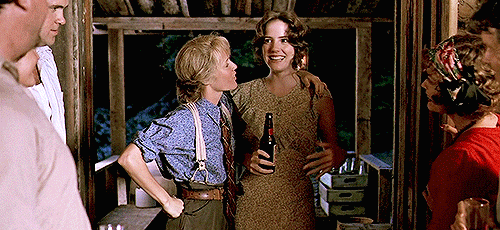
In a film steeped in memory, resilience, and identity, Evelyn Couch represents the everywoman—the person watching from the sidelines of her own life until something stirs deep within. Her journey in Fried Green Tomatoes is perhaps the most relatable of all: a middle-aged woman struggling with invisibility, yearning for purpose, and finally reclaiming her place in the world.
Evelyn’s arc is more than just personal growth. It is a roadmap for rediscovery, a lesson in agency, and a powerful example of how storytelling can catalyze change.
Trapped in Suburbia
At the beginning of the film, Evelyn Couch is stuck. Her days are filled with diet fads, disinterested conversations, and aimless grocery store runs. Her marriage to Ed—distant and uninspired—leaves her emotionally stifled. The modern world doesn’t actively hurt her, but it doesn’t see her either.
She represents millions of women who feel overlooked by a society that idealizes youth, neglects aging, and often discards housewives the moment their maternal duties are complete. Evelyn’s world is not hostile—it’s apathetic.
And then, one day in a nursing home, she meets Ninny Threadgoode.
Awakening Through Story
Ninny doesn’t just share stories about Whistle Stop—she hands Evelyn a lifeline. Through the tales of Idgie, Ruth, and the café, Evelyn begins to reimagine what her life could look like. She sees women who defy convention, stand up for themselves, and live with courage and conviction.
Each story acts as a mirror and a challenge: What if Evelyn stopped apologizing for taking up space? What if she allowed herself to be angry? Bold? Seen?
Ninny’s storytelling becomes a radical act—not just of memory, but of liberation.
“Tawanda!” – Rage as Rebirth
The film’s iconic moment comes when Evelyn, after being cut off in a parking lot by a pair of smug younger women, declares, “I’m older and I have more insurance!” and gleefully rams their car. It’s funny, yes, but also cathartic.
This isn’t mindless rage—it’s symbolic. Evelyn is no longer waiting for permission to exist. She’s reclaiming space in a world that has tried to shrink her.
She adopts the battle cry “Tawanda!” as her alter ego—a fearless, liberated woman who doesn’t ask for respect, but demands it. Tawanda is not just a fantasy; she’s a part of Evelyn waiting to emerge.
Transformation Without a Makeover

What’s powerful about Evelyn’s transformation is that it’s not cosmetic. She doesn’t need a wardrobe change or a new man to feel worthy. Her metamorphosis happens from the inside out—rooted in self-respect, personal boundaries, and reclaimed identity.
She starts exercising not to be thin, but to be strong. She stops placating Ed, and instead starts speaking up. She begins building relationships that nourish her rather than drain her.
Evelyn’s journey is a reminder that empowerment doesn’t always look loud or glamorous. Sometimes, it’s quiet and personal. And that’s enough.
A Hero for Midlife Reinvention
In a media landscape where older female characters are often sidelined or caricatured, Evelyn Couch stands out. She is a fully developed character with flaws, frustrations, humor, and hope.
Her evolution resonates especially with women over 40 who are navigating reinvention, empty nests, menopause, career shifts, or late-life awakenings. Evelyn proves that change doesn’t have an age limit—and that personal revolutions can start in the most unexpected places, even a nursing home hallway.
Legacy of Evelyn Couch
In the years since Fried Green Tomatoes premiered, Evelyn has become something of a folk hero for those undergoing transformation later in life. She’s sparked countless “Tawanda!” license plates, memes, and conversations about the power of storytelling to change real lives.
Perhaps the most inspiring part of her journey is this: Evelyn never becomes someone else. She simply returns to herself—more confident, more joyful, and more free.
Evelyn Couch doesn’t ride off into the sunset or take over the world. She just learns to live her life, fully and fearlessly. And for many, that’s the most heroic journey of all.
